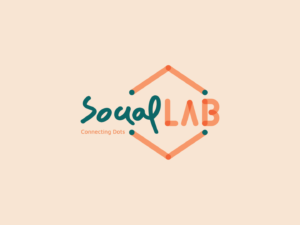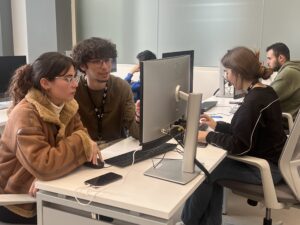The Beirut Digital District team sits with Jukka-Pekka Heikkilä on his motivations to launch WTSUP! Beirut
In February 2018, aspiring founders of startups in Lebanon took part in a series of vigorous sessions conducted by global experts. The three-day event was part of the launch of the WTSUP! Beirut pro bono initiative, seeking to provide female-driven Lebanese tech companies with education and acceleration opportunities. A Nordic-Lebanese collaboration, the WTSUP pilot is a platform for individuals and organizations, that aims to foster equality and equal opportunities for all. Taking place at BDD’s premises, the team of experts dedicated their time to building and growing local talent, for the future.
The motivations to choose Beirut as a country to pilot WTSUP were numerous. The co-founder of the initiative, Jukka-Pekka Heikkilä found similar gaps and opportunities that exist in both Beirut and Helsinki’s startup ecosystems. The driving motivation with his co-founder Fouad-Philip Saade, a Lebanese expat living in Finland, was to try out something value-based, that promotes equality and equal opportunities for all. “There is freedom of speech, the technology exists in Beirut, the startup ecosystem has huge momentum and fostering equality via entrepreneurship is clearly having a momentum,” says Jukka-Pekka Heikkilä.
Heikkilä shares his impressions, expert advice for women (and men) and reasons why Beirut is bound to thrive, in this Q&A.
BDD team: What are the impressions you have derived from Beirut and its entrepreneurial / tech scene?
JPH: The impression is twofold.
Firstly, there is so much expertise in Beirut so a lot can be accomplished, and there is also fair access to finance and venue like BDD has simply a massive potential. At least what I have observed when compared to Scandinavia.
Secondly, the regulatory sphere is very problematic for really stepping on the possibilities. Brain drain is also a real problem. What do I mean by brain drain? Not only the drain of talent to abroad, which is similar to Finland, but a drain internally where talented women don’t have access to realize their paths and dreams.
BDD team: Why are women vital to integrate and support in the tech sphere?
JPH: In the case of Lebanon, there is massive potential in this hidden talent pool. Unleashing this potential is the main argument for integration and giving support to female talent.
Furthermore, integrating and supporting women also fosters innovation and brings overall balance in the longer term to a male-dominated investment sphere. There are studies that show explicitly how men and women evaluate funding decisions differently so this would need balancing as well. We face a similar problem in Finland as well.
BDD team: What advice do you have for women (and men) on the skills required to succeed in the future workplace?
JPH: This advice is equally applicable for both men and women.
– Time has passed from a single skillset. Coding is good to learn or get a basic understanding of tech but it all comes down to the abilities of agile learning, tolerating uncertainty, perseverance, honesty, and transparency.
– It´s also important to give yourself some tech-free time (if possible) first two first hours of your day and use the time for the most demanding tasks of the day.
– One advice I always share is to volunteer, volunteer by listening to your heart. All the projects that myself and some of the friends have built have started by volunteering for a cause, even while being financially unstable. Salary tends to follow when you dedicate yourself to something and learn new skills, for example, in ecosystem building.
– For me the inspiration comes from people that are true what they aim to do. This might sound naive but remember, all of us fail. Everyone and every day. The differentiating factor is on those who desire to learn and reflect after the sh*t hits the fan instead of blaming others or organizations. Avoid negative organizational politics, if that is possible, and be friendly and positive.
– Dream big, as big as you can. The reality check will bite, sure, but the inspiration keeps you going, even through the tough times.
BDD team: For women looking to set up a new business, what guidance can you provide?
JPH responds:
– For women looking to set up a new business, I would scout events, the content, for example, from the Lebanese League for Women in Business (LLWB) and also other ones, all WTSUP partners who do education can be recommended to be looked into. It often comes down to networks. Word of caution is that events are good to visit but avoid getting into the loop of too many events. Or create your own event if you wish to stir the conversation a bit, that’s always fun.
– For idea creation, I am a strong advocate of openness. In the early-stage it’s all about the team, the idea will change or at least develop considerably. The copycat phenomenon is coming to its end so do not copy ideas from the West, think something local to the region which can also be applied in Europe. Instead, go back to basics and down to the basic needs of people. Then learn Design Thinking and other methods, if you cannot get them in the school or via events or programs – learn them online and modify them, browse forums, ask for help etc. And once you have done a bit of grounding, shoot your ideas out there!
– For internationalization, although I am going Stanford myself later this year, I recommend looking closer. Silicon Valley is not the mythic startup-heaven it used to be, never mind the cost of living there. Of course, it’s still unique in innovation but look also to Europe, if the West is on the agenda and aim for international conferences and tracks. Most importantly, look back to Lebanon for building your business, and start building the attractive community by yourself, with like-minded people. There is such a big momentum currently to foster equality and equal opportunities to all.
Biography
Jukka-Pekka is a Fellow of Royal Society (UK), a Fellow of British Academy and a Fellow of Academy of Finland, a visiting scholar in Stanford University 2019, based in Aalto University, School of Business (Finland). Jukka-Pekka has recently started an initiative that aims to empower female tech entrepreneurs in Beirut and foster equal opportunities for all (see www.wtsup.org ), teaches entrepreneurship in Finland and is strongly engaged with The Shortcut initiative that aims to integrate refugees and immigrants to the Finnish society via technology entrepreneurship. More: https://www.linkedin.com/in/jpheikkila/




